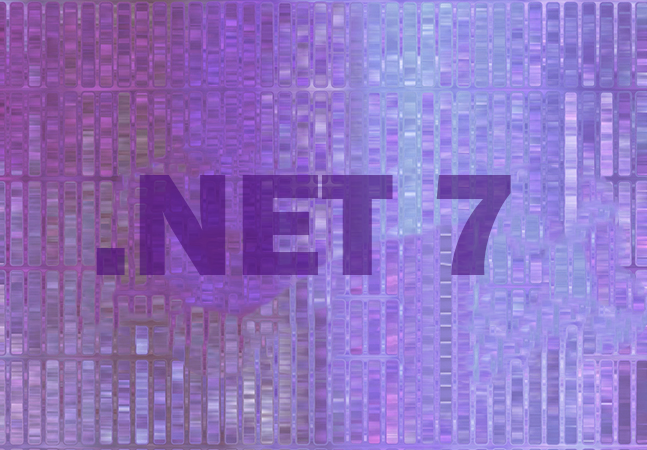Exploring the Exciting New Features of .NET 7
The .NET framework has always been known for its versatility, reliability, and robustness in building scalable and performant applications. With each new release, developers eagerly anticipate the introduction of innovative features and enhancements. In this article, we will dive into the exciting new features of .NET 7, the latest iteration of the popular framework, and explore how they can elevate the development experience.
- Source Generators:
Source generators, introduced in .NET 5, have received further enhancements in .NET 7. They allow developers to generate code during compilation, enabling powerful metaprogramming scenarios. With .NET 7, source generators gain new capabilities, including the ability to generate code asynchronously, create analyzers, and interact with build processes more effectively. This feature opens up a world of possibilities for code generation, reducing boilerplate code and enabling more efficient development workflows. - Performance Improvements:
.NET 7 brings significant performance improvements across various aspects of the framework. From enhanced JIT (Just-In-Time) compilation and runtime optimizations to improved garbage collection and memory usage, developers can expect faster execution times and better overall application performance. These enhancements ensure that .NET applications are even more efficient and responsive, delivering a seamless user experience. - Error Reduction and Consistency:
Manual deployments are prone to human errors, leading to issues such as configuration mismatches, missing files, or incorrect dependencies. With Azure Continuous Deployment, these risks are significantly reduced. The deployment process is automated and follows predefined scripts and configurations, ensuring consistency and accuracy. This minimizes the chances of errors and creates a more reliable and stable application environment. New Language Features: - Cross-Platform Development:
.NET has always been a cross-platform framework, and with .NET 7, this capability is further expanded. With the introduction of ARM64 macOS support, developers can now build and run .NET applications natively on Apple Silicon devices, delivering a seamless experience for macOS users. This addition complements the existing support for Windows, Linux, iOS, and Android, allowing developers to target a wide range of platforms with ease. - Web Application Development:
For web application developers, .NET 7 brings exciting new features and improvements. The inclusion of the minimal APIs concept allows developers to build lightweight and modular web applications without the need for excessive boilerplate code. Additionally, Blazor, the popular framework for building interactive web UIs with .NET, receives performance optimizations, making it even more compelling for web development projects. - Improved Containerization Support:
Containerization has become an integral part of modern application development and deployment. With .NET 7, Microsoft has focused on improving containerization support by reducing the framework's footprint and optimizing its performance within container environments. These improvements enable developers to create containerized applications that are more resource-efficient, scalable, and easily deployable across different container platforms.
.NET 7 introduces several new language features that enhance developer productivity and code expressiveness. One of the notable additions is the "record structs" feature, which combines the benefits of records and structs. It allows developers to create lightweight, immutable data structures that are ideal for scenarios where performance and memory usage are critical. Additionally, pattern matching enhancements, such as the introduction of the "or" pattern, simplify complex conditional logic and make code more concise.
.NET 7 is an exciting release that brings a plethora of new features and enhancements to the framework. From improved performance and cross-platform capabilities to language enhancements and containerization support, developers can take advantage of these new features to build highly performant, scalable, and cross-platform applications. With each iteration, .NET continues to evolve, empowering developers to create innovative solutions across a wide range of industries.

